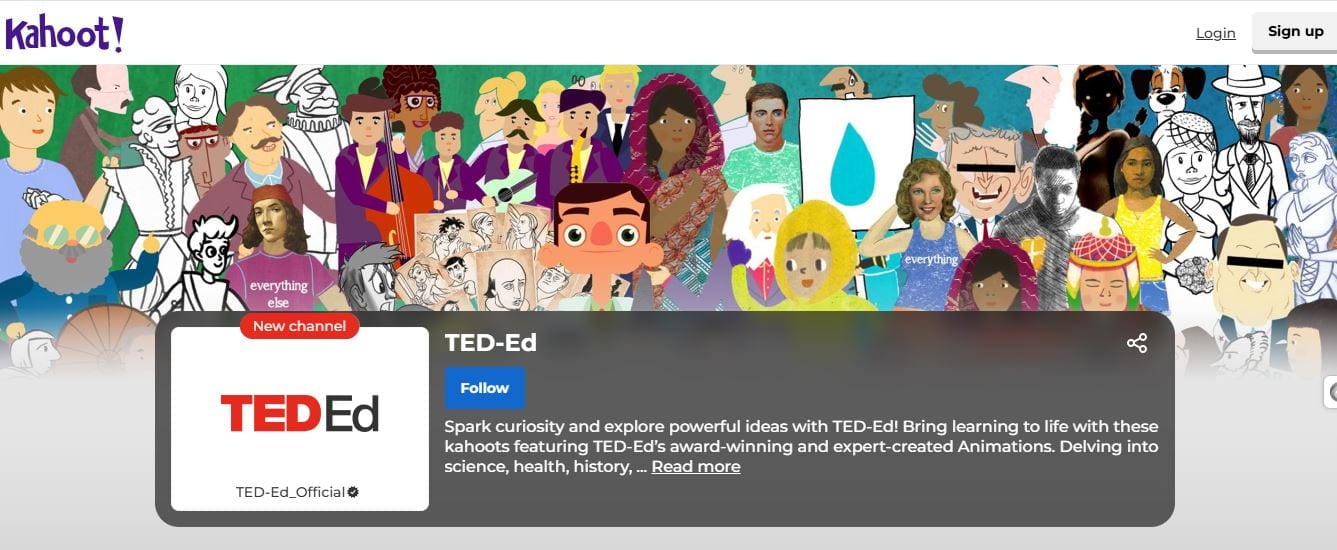Kahoot just announced they’ve developed a partnership with TED-Ed.
TED-Ed animations will now be paired with Kahoot quizzes, and they’ll all be free.
That’s a nice development.
However, it appears that it’s pretty much a matter of watching the video on Kahoot’s site, and then it’s followed by questions about it in their typical game format.
That’s okay, but it could be sooooo much better if they divided up the video into shorter segments and then had questions about it intermittently.
Research, and most teachers’ experience, shows that this is a much more productive way to use video in the classroom.
Brainpop has figured that out, which is why they’re converting their videos to that format, as does Google in their paid Google For Education feature. EdPuzzle, of course, has been doing it for a long time.
It would be great if AI could be used to create these kinds of interactive videos. You used to be able to do it with Quizizz, but no longer (see One Of The Few Truly Useful Ways AI Has Helped Teachers Appears To Have Been Snuffed Out). And, as those districts, like ours, who pay for the upgraded Google For Education program have discovered, its AI capabilities don’t often work for videos. So teachers have to do it manually. I haven’t had much success with EdPuzzle’s AI tools, either.
Kahoot just announced they’ve developed a partnership with TED-Ed. TED-Ed animations will now be paired with Kahoot quizzes, and they’ll all be free. That’s a nice development. However, it appears that it’s pretty much a matter of watching the video on Kahoot’s site, and then it’s followed by questions about it in their typical learning games Larry Ferlazzo’s Websites of the Day…









